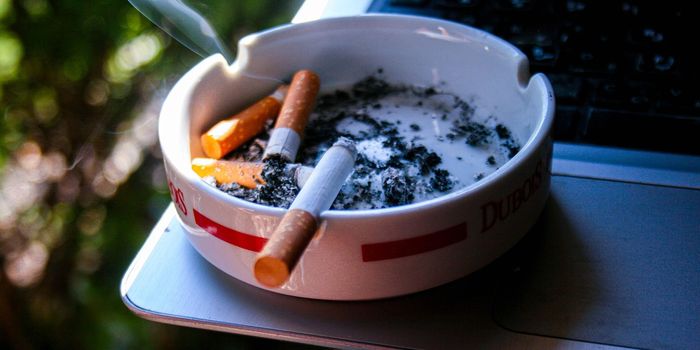Lung Cancer Biomarkers are Under Your Nose, Literally
With the progress of breathalyzers, scientists are busy configuring these technologies for the diagnosis of cancer and other diseases. But, can they go one step further and use a only a nose swab to diagnose cancer? Researchers at the Boston University School of Medicine report yes, at least in lung cancer for now.
Publishing in the Journal of the National Cancer Institute, Boston researchers found that epithelial cells inside a patients’ nose bear the genetic signatures of lung cancer. As such, samples collected from a nasal swab or brush may be sufficient for doctors to diagnose this disease.
"Given that bronchial and nasal epithelial gene expressions are similarly altered by cigarette smoke exposure, we sought to determine in this study if cancer-associated gene expression might also be detectable in the more readily accessible nasal epithelium,” explained Dr. Avrum Spira, the study’s co-author.
The team collected nasal brushings from a group of patients who had a history of smoking, either currently or in the past. With the samples, the team used genetic microarray assays to detect mutations commonly associated with lung cancer.
"Our findings clearly demonstrate the existence of a cancer-associated airway field of injury that also can be measured in nasal epithelium. We find that nasal gene expression contains information about the presence of cancer that is independent of standard clinical risk factors, suggesting that nasal epithelial gene expression might aid in lung cancer detection. Moreover, the nasal samples can be collected non-invasively with little instrumentation or advanced training,” said Marc Lenburg, the study’s co-senior author.
"There is a clear and growing need to develop additional diagnostic approaches for evaluating pulmonary lesions to determine which patients should undergo CT surveillance or invasive biopsy," Dr. Spira said. “The ability to test for molecular changes in this 'field of injury' allows us to rule out the disease earlier without invasive procedures,” he added.
The team argues that such diagnostic test could dramatically reduce unnecessary and invasive procedures associated with lung cancer suspicions. In particular, many times lung lesions that are detected in X-rays turn out to be benign. But doctors must go through a battery of invasive tests before confirming this outcome. The nasal swab could bypass this step, saving time, money, and stress for doctors and patients, especially.
Of note, the nasal swab may only work in people who have a history of smoking. Non-smokers may still have to endure the invasive procedures until better diagnostic platforms are available. And as with emerging diagnostic technologies, a doctor’s expertise is still required to make the final call.
Additional sources: US News, Daily Mail UK









